Editorial Team

Playing the Hidden Curriculum
Playing the Hidden Curriculum: Exposing, materializing and questioning the unwritten rules of higher education is a research project that aims to adress the unwritten social and cultural rules in education, so that the UU will foster its education in a more social and inclusive way.
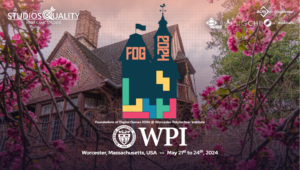
Game Research @FDG 2024!
The International Conference on the Foundations of Digital Games (FDG) invites any-and-all research contributions that advance the study, understanding, and knowledge of digital games. From traditional academic submissions (e.g., full papers and short papers) to interactive playable experiences (e.g., full games or demos), to panel proposals, doctoral consortium applications, and beyond, FDG strives to provide

Game Research at CHI 2024
The ACM (Association of Computing Machinery) CHI conference on Human Factors in Computing Systems occurred from May 11-16, 2024 in Honolulu. Our games researchers from the Utrecht Center for Game Research attended and presented a variety of contributions.
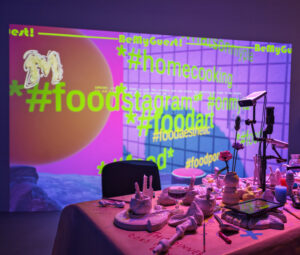
Meet the Makers: Daniela Tenenbaum and “In Touch”
Our colleagues from the Transmission in Motion hybrid research community are organizing another Meet the Makers session, this time focusing on the IMPACT exhibition In Touch. It’s an exhibition which should be interesting for those exploring the potential of playful media.

Two Assistant Professors in Screen Media
The department of Media and Culture Studies has published two job openings for Assistant Professors which might be interesting for those engaged in research fields related to games and play: Screen Media.
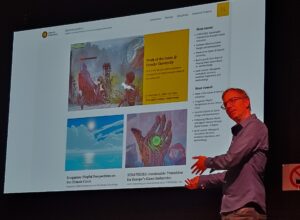
New Game Research website launched – Call for Participation
The new website of the Center for Game Research has launched, the new platform for game researchers at at Utrecht University. All are invited to contribute.
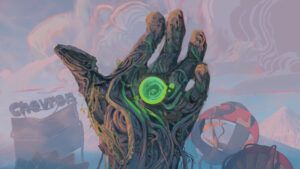
STRATEGIES: Sustainable Transition for Europe’s Game Industries
Learn everything you need to know about STRATEGIES , the recently started research project, spearheaded by Utrecht University.

“Beavers don’t walk on roads”: Beaver-play for more-than-human cartographies
In this paper, Laura op de Beke, Linas Kristupas Gabrielaitis, Oğuz ‘Oz’ Buruk,Velvet Spors, and Ferran Altarriba Bertran introduce the notion of beaver-play to understand play that challenges spatial conventions, transgresses boundaries, and redraws territories.

Book Launch: Four Ways of Hearing Video Game Music – Dr. Michiel Kamp
Please join us to celebrate the publication of Michiel Kamp’s Four ways of Hearing Video Game Music, published with Oxford University Press, 2024.
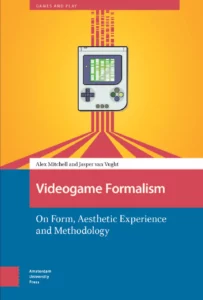
Book Launch: Videogame Formalism: On Form, Aesthetic Experience, and Methodology
Please join us to celebrate the publication of Alex Mitchell and Jasper van Vught’s book: Videogame Formalism: On Form, Aesthetic Experience, and Methodology, published open access with Amsterdam University Press, 2023. To mark this occasion, Alex and Jasper will give an (online) talk on:Friday, 22 March 2024, 7Am (2PM Singapore time).You can register for the
